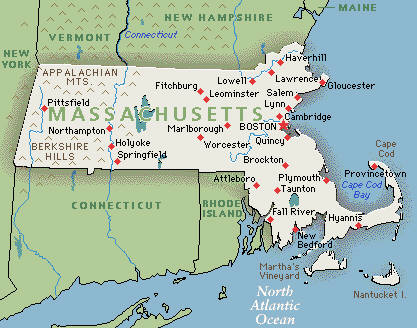Accounting
Massachusetts reports employment downturn in April
Higher payroll taxes and federal sequestration spending cuts are keeping the Bay State stuck in a "soft patch" of economic growth that could last until the end of the year unless federal fiscal policy changes are put into immediate action, experts said yesterday, as new numbers show the state losing jobs.
May. 17, 2013

Higher payroll taxes and federal sequestration spending cuts are keeping the Bay State stuck in a “soft patch” of economic growth that could last until the end of the year unless federal fiscal policy changes are put into immediate action, experts said yesterday, as new numbers show the state losing jobs.
Massachusetts lost an estimated 1,400 jobs last month, while the state’s unemployment rate remained the same at 6.4 percent, according to the Executive Office of Labor and Workforce Development. Revised numbers showed the state actually lost 3,800 jobs in March rather than initial estimates of 5,500 jobs.
It is the third month of losses, according to statistics from the U.S. Bureau of Labor and Statistics.
“So much of our near-term economic outlook is depending on policy changes made at the national and international levels,” said Michael Goodman, a public policy professor at the University of Massachusetts Dartmouth. “If the policy remains steady and constant, and fiscal choices made here and abroad remain the same, the status quo is a likely outcome.”
Robert Nakosteen, an economics professor at the University of Massachusetts Amherst’s Isenberg School of Management, said a “tug of war” still exists between economic highlights — including a robust housing market — and downsides such as federal budget cuts.
“In a way we’ve shot ourselves in the foot with the sequester and the timing of the higher taxes. Part of our problems have been created by our politicians,” Nakosteen said. “Ultimately the economy is going to win, but it’s going to be slower by maybe a percentage point of growth, which is going to have impacts on job growth in the state.”
Even though the state’s professional, scientific and business services sector saw a major employment reversal in April by adding 4,500 jobs, Goodman said the boost would not immediately offset job losses experienced in other sectors such as leisure and hospitality, government and financial activities.
“It’s good, but that rising tide of the innovation economy hasn’t lifted all of the boats, regionally, industrially, and occupationally, at least not yet,” Goodman said.
But Northeastern University economist Alan Clayton-Matthews said underlying strength in private demand and private spending should contribute to job levels climbing back up by next year.
“I expect some job growth coming soon, but at a slow rate,” he said. “Near the end of the year we’ll see growth start to tick up and be very strong in 2014 and 2015.”
—————-
Copyright 2013 – Boston Herald
